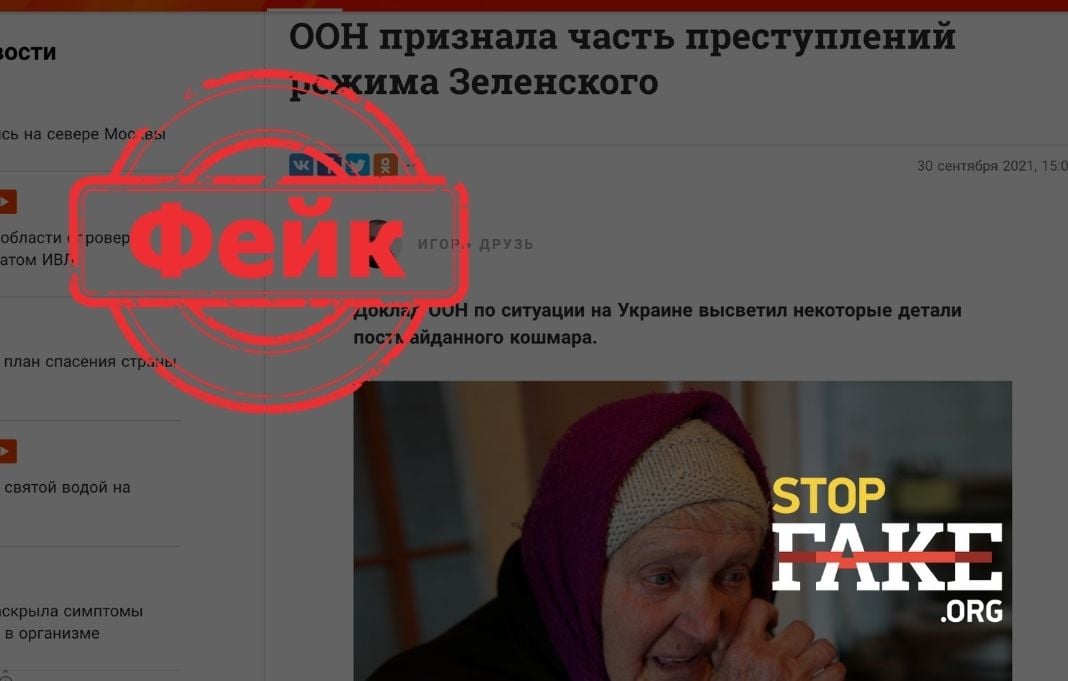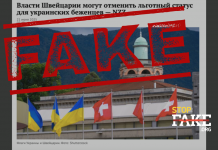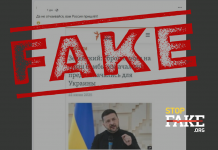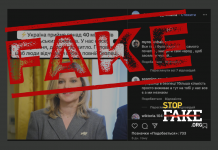United Nations observers did document many human rights violations, but all those violations took place in those areas of Ukraine that are currently occupied by Russia. Torture, illegal searches, detentions and censorship are daily occurrences there.
“The United Nations criticizes Kyiv for massive human rights violations” hailed scores of Russian publications in a stream of disinformation about the latest UN report on human rights. These pro-Kremlin media claimed that the Ukrainian government is violating the rights of its own citizens, killing its population, using torture and destroying freedom of speech.
“Ukrainian politicians and many media outlets completely ignored this document, as it contains many critical remarks about Ukrainian authorities’ actions” declared NewsFront. Fond Strategicheskoi Kultury, REN TV, EurAsia.Daily and others quickly followed suit.
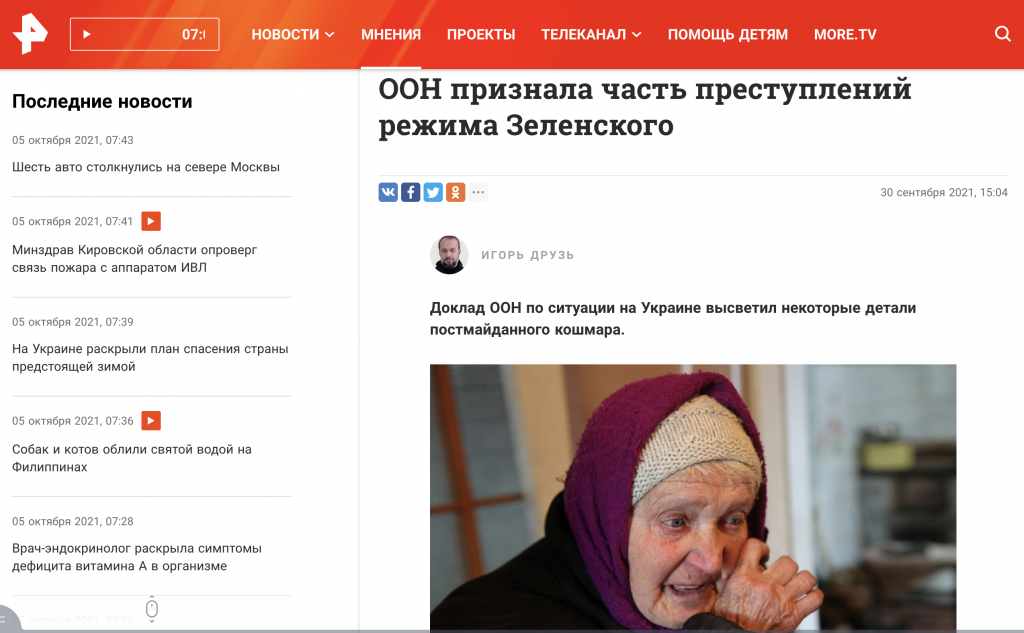
The pro-Kremlin media is deliberately manipulating the data of the new UN Office of the High Commissioner for Human Rights Report on the Human Rights Situation in Ukraine, which covers the period from February 1 to July 31, 2021. The document does indeed mention the closure of pro-Russian TV channels in Ukraine, reports 22 cases of threats and attacks on representatives of the press, the LGBT community and ethnic minorities. However, the lion’s share of the document – which the Russian media conveniently forget to mention – is devoted to the flagrant violations taking place in the Russian occupied parts of the country. The Kremlin and its proxies in the self-proclaimed Donetsk and Luhansk People’s Republics are directly responsible for the torture, detention and total censorship in Crimea and the occupied territories.
The report emphasizes that Ukrainian authorities are striving to rectify the situation with human rights issues and cooperating with UN personnel, while the occupying forces refuse to do so:
“OHCHR conducted an assessment of the implementation of 344 measurable recommendations it had issued in its past 31 periodic and eight thematic reports. This assessment showed that the Government of Ukraine has fully implemented 13 per cent of the recommendations made by OHCHR, and partially implemented 56 per cent, leaving 31 per cent unimplemented; the Russian Federation has not fully implemented any OHCHR recommendations, and partially implemented three per cent, leaving 97 per cent of recommendations unimplemented; and self-proclaimed ‘republics’ have fully implemented three per cent of OHCHR recommendations, partially implemented 18 per cent, leaving 79 per cent of recommendations unimplemented”– the report states.
The following are the main human rights violations observed in the occupied Donetsk and Luhansk regions:
- Forced recruitment into self-proclaimed republics military formations (paragraph 35-36);
- Militants restricting the freedom of movement by constantly blocking checkpoints (paragraph 37-39);
- Ceasefire violations leading to civilian loss of life (paragraph 44-46);
- Expropriation of private property in the occupied territories (paragraph 49);
- Forcing people to obtain Russian citizenship or risk firing or salary cuts (paragraph 53);
- Denying human rights activists access to places of detention (paragraph55);
- Mass detentions of civilians in the occupied territories (paragraphs 57-60);
- Violence against women (paragraphs 64-67)
- Violation of freedom of assembly and opinion (paragraph 84, 90);
- Violation of freedom of religion(paragraph92);
- Extensive wage arrears (paragraph109).
The UN High Commissioner for Human Rights separately examined Russia’s human rights violations in occupied Crimea. Among the violations cited in the report are the ban on peaceful assembly, violations of the right to personal liberty and security, torture, searches, detention, lack of impartial administration of justice and the right to a fair trial (pages 31-33).
Denying responsibility for the mass searches, arrests, abductions and torture of Ukrainians living in the territories occupied by the Kremlin is a tactic that the Russian media have followed since the beginning of the occupation of Crimea and parts of the Donetsk and Luhansk regions. Read about a similar case of blatant manipulation of UN documents reviewed by StopFake journalists in the article “Fake: UN has open access to Crimea is open, observer reports dubious.


